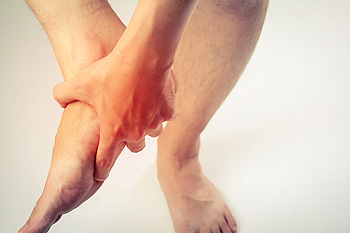
Plantar fasciitis, a common cause of heel and arch pain, arises from repeated micro-tears in the plantar fascia fibers, primarily at the point where the fascia connects to the heel bone. Stretching exercises are a vital treatment for plantar fasciitis. These exercises should focus on both the calf and the plantar fascia to yield maximum effectiveness, as tight calf muscles are a frequent cause of plantar fasciitis. Strengthening exercises that target intrinsic foot muscles and the calf muscles offer significant relief by stabilizing and supporting the foot and heel. Shoe inserts, such as gel heel pads or orthotics, are another simple, yet effective treatment. These aids vary from basic heel pads or cups that offer cushioning for the heel to custom-made orthotics prescribed by a podiatrist that correct abnormal foot positions, such as fallen arches. They reduce tension on the Achilles tendon and plantar fascia, providing much-needed comfort. Choosing the right footwear is an important way to manage plantar fasciitis. Opt for shoes that provide excellent cushioning and support, especially for the medial arch of the foot. Wearing shoes throughout the day, rather than walking barefoot, ensures continuous support and cushioning for the feet. If you are experiencing symptoms of plantar fasciitis, it is suggested that you make an appointment with a podiatrist who can safely guide your treatment and recovery.
Plantar fasciitis is a common foot condition that is often caused by a strain injury. If you are experiencing heel pain or symptoms of plantar fasciitis, contact Dr. Michael A. Wood from Foot Health Institute. Our doctor can provide the care you need to keep you pain-free and on your feet.
What Is Plantar Fasciitis?
Plantar fasciitis is one of the most common causes of heel pain. The plantar fascia is a ligament that connects your heel to the front of your foot. When this ligament becomes inflamed, plantar fasciitis is the result. If you have plantar fasciitis you will have a stabbing pain that usually occurs with your first steps in the morning. As the day progresses and you walk around more, this pain will start to disappear, but it will return after long periods of standing or sitting.
What Causes Plantar Fasciitis?
- Excessive running
- Having high arches in your feet
- Other foot issues such as flat feet
- Pregnancy (due to the sudden weight gain)
- Being on your feet very often
There are some risk factors that may make you more likely to develop plantar fasciitis compared to others. The condition most commonly affects adults between the ages of 40 and 60. It also tends to affect people who are obese because the extra pounds result in extra stress being placed on the plantar fascia.
Prevention
- Take good care of your feet – Wear shoes that have good arch support and heel cushioning.
- Maintain a healthy weight
- If you are a runner, alternate running with other sports that won’t cause heel pain
There are a variety of treatment options available for plantar fasciitis along with the pain that accompanies it. Additionally, physical therapy is a very important component in the treatment process. It is important that you meet with your podiatrist to determine which treatment option is best for you.
If you have any questions, please feel free to contact one of our offices located in Lansing, and Chicago, IL . We offer the newest diagnostic and treatment technologies for all your foot care needs.
